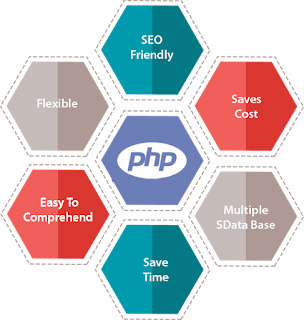As a business owner, you understand the importance of having a website. There are many languages that are used for developing web applications and one of the most popular is PHP. Before you go on and hire PHP developer for your business, it is worth understanding what the language is all about it.

PHP traces its roots in 1994 when Rasmus Lerdorf wrote a series of Common Gateway Interface (CGi) binaries using C language. He used this program to maintain his personal homepage and eventually used them to create web forms and in database communication. He called this extension “Personal Home Page/Forms Interpreter” or PHP/FI.
To date, PHP runs on over 240 million websites (39% of which are sampled) and 2.1 million web servers.
You might not be aware of it but popular social media network Facebook, Wikipedia, and WordPress blogs run on PHP. If you encounter a page with the file extension .php instead of .html, this means that the source code was written on PHP before being loaded to your browser. As a result, you can see dynamic information that has been tailored according to your needs. Aside from websites and blogs, forums, shopping carts, and article directories are also dependent on PHP programming.
With all these factors in mind, it would now be much easier for you to hire PHP developers who will create a website for your business. This way, you will have an idea of how your site will perform once it is up and running.

why it is popular as a programming platform?
PHP traces its roots in 1994 when Rasmus Lerdorf wrote a series of Common Gateway Interface (CGi) binaries using C language. He used this program to maintain his personal homepage and eventually used them to create web forms and in database communication. He called this extension “Personal Home Page/Forms Interpreter” or PHP/FI.
To date, PHP runs on over 240 million websites (39% of which are sampled) and 2.1 million web servers.
Who Are The Users?
You might not be aware of it but popular social media network Facebook, Wikipedia, and WordPress blogs run on PHP. If you encounter a page with the file extension .php instead of .html, this means that the source code was written on PHP before being loaded to your browser. As a result, you can see dynamic information that has been tailored according to your needs. Aside from websites and blogs, forums, shopping carts, and article directories are also dependent on PHP programming.
Keys to Its Popularity
Here are the reasons that contributed to the popularity of PHP as a programming platform:
- It is a server-side script. This means that all the processing and programming are done on the host server than on your machine. The stored information accessed on your browsers are not dependent on cookies. This explains why you can open your Facebook account, enter your username and password on any computer.
- It is open source. As a result, editing of the source code can be done by any programmer and anyone can be a contributor to further development. This explains why there are so many plug-in programs already available.
- Installation does not require any license fees. For this reason, the cost for maintaining a server is kept at a minimum. PHP is platform independent and can run on Windows, Linux, or Unix. It is also more secured than Java.
- It is easy to learn. With a plethora of viewable source codes to choose from, any programmer can use a standard installation and then change the program to suit their specific requirements. The code is based on C or C++ and can be embedded on an HTML source code.
- Versatility. If you work in a multi-tasking environment, this is where PHP programming can work best. It can be useful in designing any kind of website. It is effective in creating websites with a huge volume of traffic.
- Multi-platform. As mentioned, PHP can be used for all kinds of platforms. You can use it to make a website run on Windows, Mac, Unix, or Linux.

Conclusion
With all these factors in mind, it would now be much easier for you to hire PHP developers who will create a website for your business. This way, you will have an idea of how your site will perform once it is up and running.


0 comments:
Post a Comment